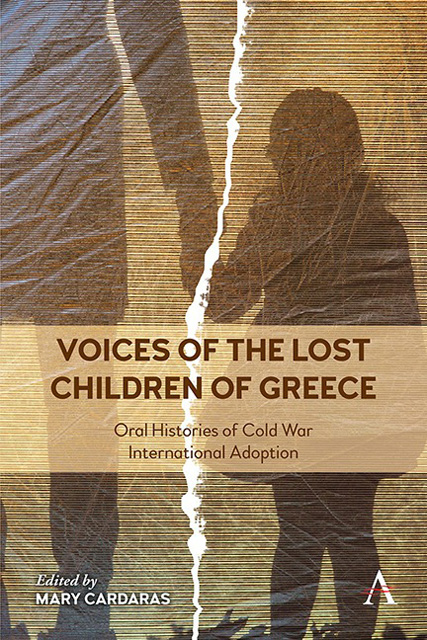Book contents
- Frontmatter
- Dedication
- Dedication
- Contents
- Foreword
- Introduction
- 1 Adoption’s Unfinished Business
- 2 Full Circles and Beyond
- 3 What’s in a Name?
- 4 The Second Beginning
- 5 Questions of the Heart
- 6 The Secret
- 7 A Coffin Full of Secrets
- 8 The Final Goodbye
- 9 Unsettled Soul
- 10 That’s All I Know So Far
- 11 Given, Taken, Never Received
- 12 An Adventure in Identity
- 13 Broken Lines: A Story to Tell
- 14 An Unexpected Journey
- 15 Time Run Out
- 16 Today and Afterward
- Acknowledgments
- About the Editor
- Resource List
16 - Today and Afterward
Published online by Cambridge University Press: 17 October 2023
- Frontmatter
- Dedication
- Dedication
- Contents
- Foreword
- Introduction
- 1 Adoption’s Unfinished Business
- 2 Full Circles and Beyond
- 3 What’s in a Name?
- 4 The Second Beginning
- 5 Questions of the Heart
- 6 The Secret
- 7 A Coffin Full of Secrets
- 8 The Final Goodbye
- 9 Unsettled Soul
- 10 That’s All I Know So Far
- 11 Given, Taken, Never Received
- 12 An Adventure in Identity
- 13 Broken Lines: A Story to Tell
- 14 An Unexpected Journey
- 15 Time Run Out
- 16 Today and Afterward
- Acknowledgments
- About the Editor
- Resource List
Summary
The estimated 4,000 Greek-born adoptees are among the oldest group in modern history who were exported, en masse, for adoption. What followed was a tsunami of international adoptions. Children traveling, crisscrossing the globe, having been excised from their country of origin, from the arms of their mothers, from orphanages, to the embrace of strangers in points all over the world.
Korea. China. Romania. Vietnam. Ethiopia. Guatemala. Russia. This is to say nothing, of course, about the millions of domestic adoptions within countries that have been problematic and fraught with ethical and moral questions, not to mention legal scandals, in Ireland and the United States.
Although the practice of adoption has been in the public discourse, it was not until the important book, American Baby: A Mother, A Child, and the Shadow History of Adoption (Viking, 2021), written by best-selling author and investigative journalist Gabrielle Glaser, aimed a stark spotlight at nefarious adoption practices in the United States, which were widespread and deep. She tells the story of the millions of adoptions in the United States through one single heartbreaking story of a baby whose parents were forced to relinquish him. His birth father had died and he was reunited, just months before his own death, with his mother and sister. His death was one that could have been prevented had he known his medical history years earlier.
Glaser writes, “The United States had little understanding of the possible long-term consequences when it launched a social experiment in which millions of babies were raised by families with whom they had no genetic bond and who knew little or nothing of their inheritance. Closed adoptions of babies born to single women were universally seen as a societal gain, a winwin for the mothers, adoptees, and adoptive couples. Most often they were anything but that.”
Glaser began a national conversation about adoption, which seemed to ignite a firestorm of activity that reverberated around the world— in newspaper articles, on television, in other books, on social media, among legal organizations helping adoptees, and for the adoptees themselves, who raised their voices louder than ever for the right to know who they are.
- Type
- Chapter
- Information
- Voices of the Lost Children of GreeceOral Histories of Post-War International Adoption, pp. 179 - 184Publisher: Anthem PressPrint publication year: 2023

